3 Ways To Create Great Sounding Solos On Guitar Using Triad Chord Shapes
by Simon Candy
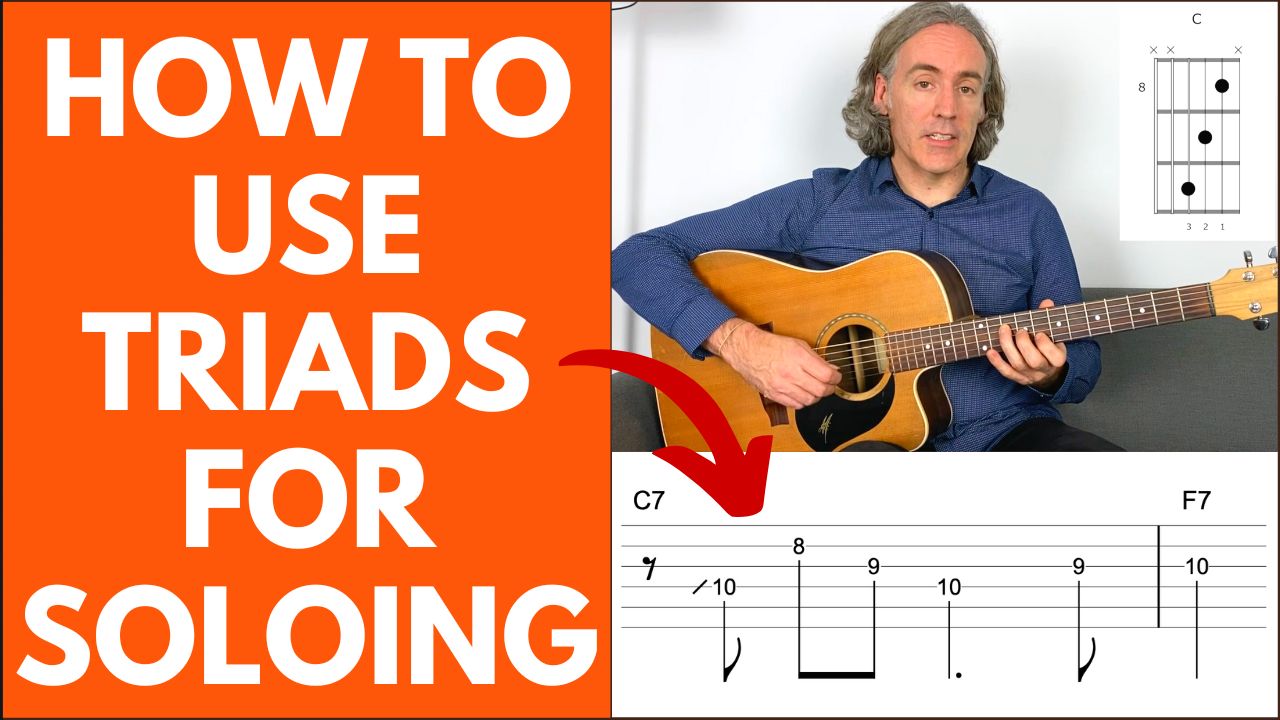 In this video, you learn how to create better solos on guitar using triads.
In this video, you learn how to create better solos on guitar using triads.
Triads are great for seriously expanding your chord playing, however, they are equally as good for expanding your soloing on the instrument as well.
In this lesson, you learn the difference between fretting triad shapes on the guitar for playing rhythm parts and visualising the shapes for lead guitar playing.
You also learn 3 approaches to creating great solos using the triad chord shapes.
Triad Solo Approach 1:
- First, you learn how to outline a chord progression using triads
Triad Solo Approach 2:
- Next, you learn how to approach the notes of a triad a half step above or below creating smoother solo lines
Triad Solo Approach 3:
- Finally, you learn how to add notes from the scale to broaden the scope of your sound when soloing on guitar
Watch the video below to learn more:
C Blues Solo 1: Triads By Shape
This first solo targets a single triad shape for each of the C7, F7, and G7 chords of the blues.
This is the easiest approach and a good place to start:
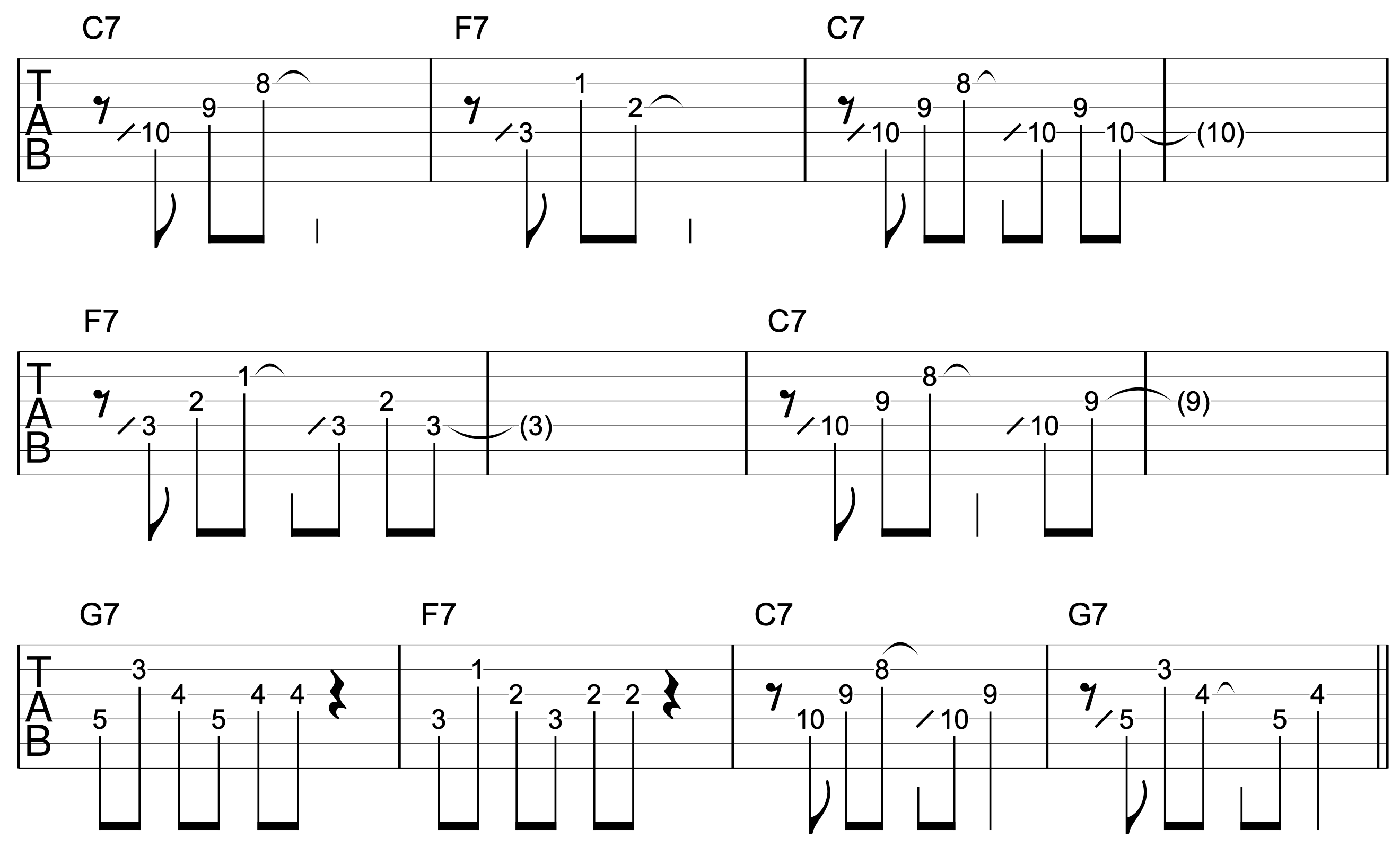
C Blues Solo 2: Triads By Position
The second solo targets the notes of the triad using shapes around the same position on the fretboard:
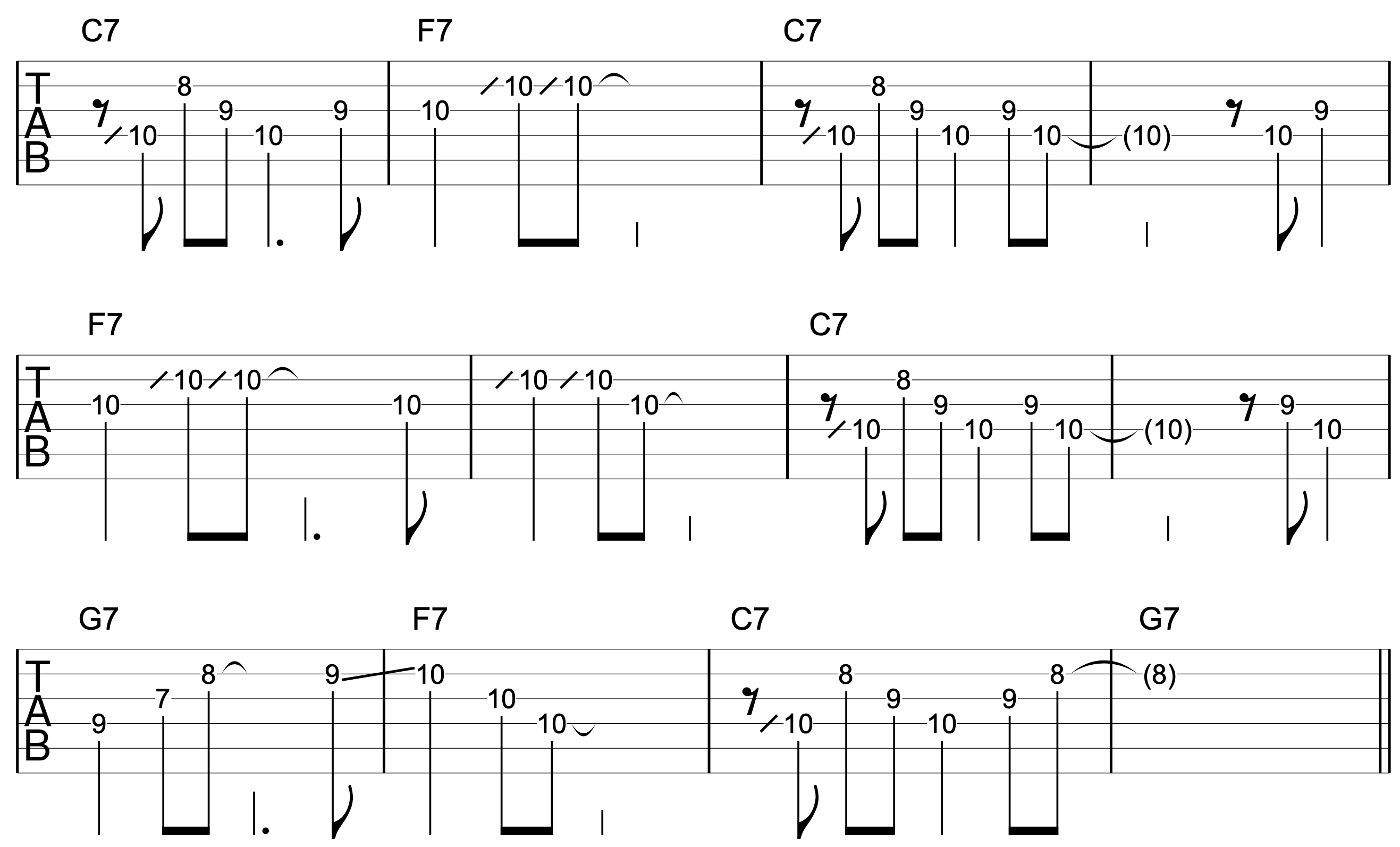
C Blues Solo 3: Half Step Approach
In this solo, we target the notes of the triad shape from a half step (1 fret) above or below for a smooth sound:
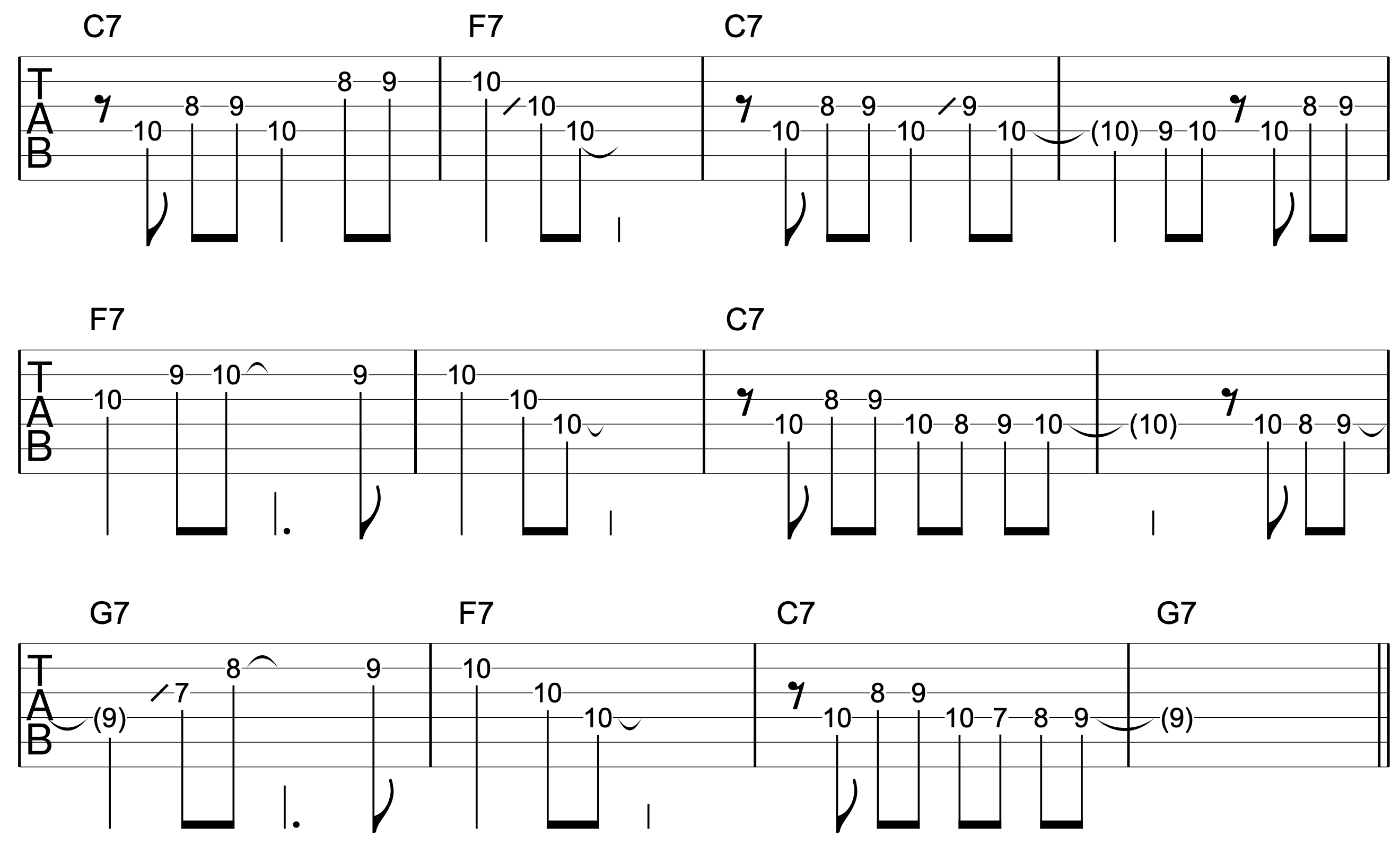
C Blues Solo 4: Adding Scale Tones
In this final solo, we add scale tones around the notes of the triad to broaden our sound:
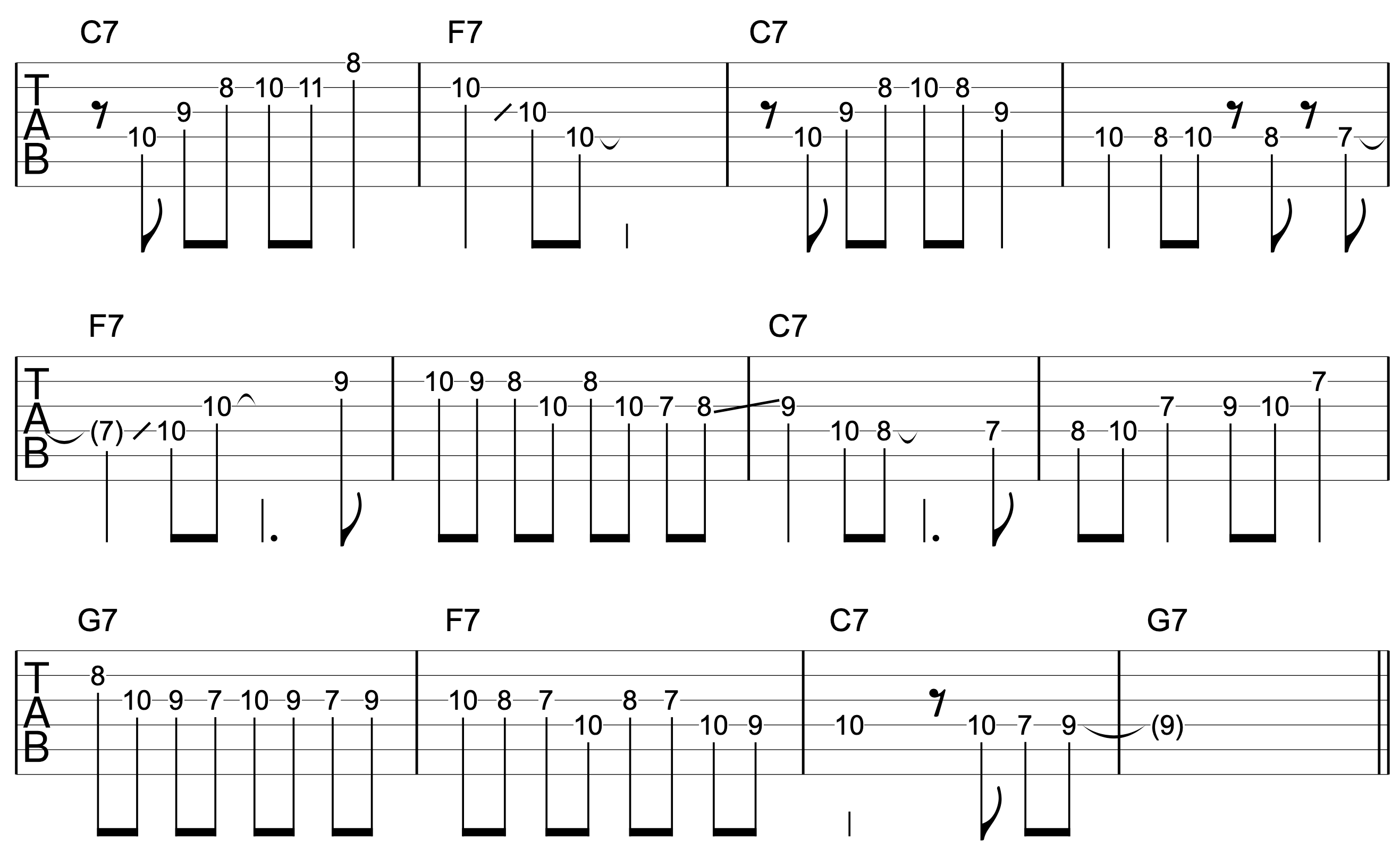
Learn how to create melodic solos on guitar using arpeggios